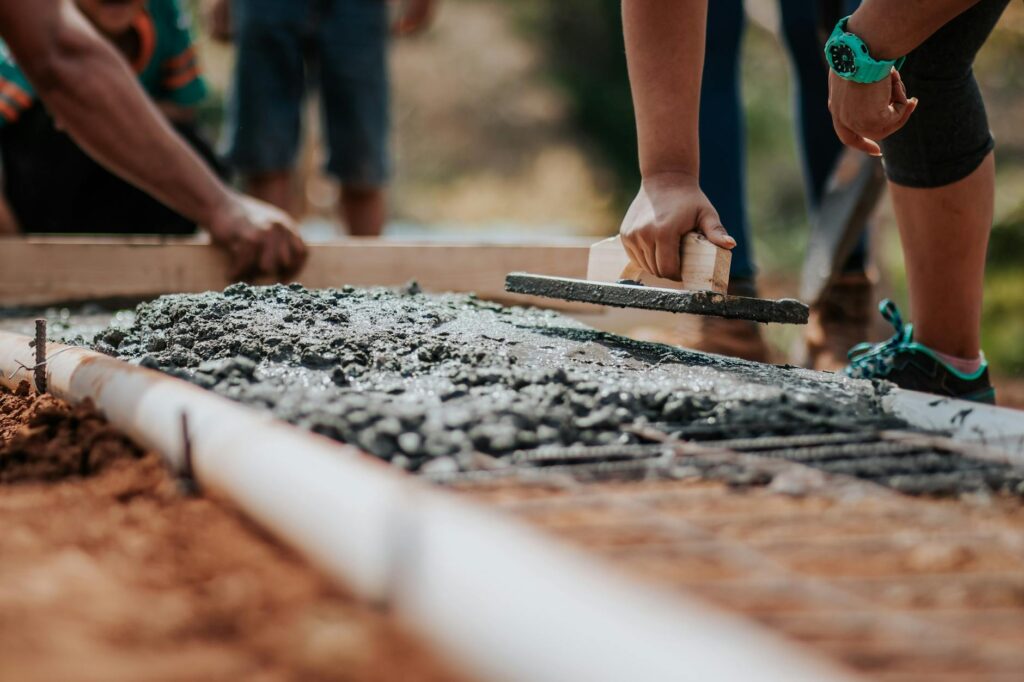Thinking about a new construction project? One of the first things you’ll need to consider is the cost of your foundation. Concrete is a popular and reliable choice, but the price can vary widely. Let’s break down the factors that influence the final cost and help you get a better understanding of what to expect.
Factors Affecting Concrete Foundation Price
Several key factors determine the overall price of your concrete foundation. These include the size and type of foundation needed, the quality of the concrete mix, labor costs in your region, and any additional features or complexities involved in the pour. Understanding these factors will help you budget effectively. 
Types of Concrete Foundations
Different types of foundations exist, each impacting the final cost. Slab-on-grade foundations are generally less expensive than basements or crawl spaces. Learn more about foundation types to determine which best suits your needs and budget. The complexity of the design also plays a crucial role. A simple rectangular foundation will be cheaper than one with intricate shapes or significant retaining walls.
Concrete Mix and Quality
The strength and durability of your concrete foundation depend heavily on the mix design. Higher-strength concrete mixes typically cost more but offer increased longevity and resistance to cracking. Choosing the right mix for your project is vital; consulting with a structural engineer can help you determine the necessary strength and, consequently, the cost. [IMAGE_2_HERE]
Regional Labor Costs
Labor costs vary considerably across different regions. Areas with a high cost of living or strong union presence will generally have higher labor costs for concrete work. It’s important to get quotes from multiple contractors in your area to compare pricing and understand the local market rates. Check out this resource for average labor costs in your state.
Excavation and Site Preparation
Before the concrete pour can even begin, excavation and site preparation are necessary. This includes removing topsoil, digging the foundation hole to the correct depth, and ensuring proper drainage. The complexity of site preparation, including any rock removal or difficult soil conditions, can significantly impact the overall cost. Read more about site preparation and its impact on your budget.
Additional Features and Considerations
Additional features, such as installing footings, reinforcing steel (rebar), or waterproofing membranes, will add to the total cost. While these extras enhance the foundation’s strength and longevity, they represent added expenses. Proper planning and understanding of these options during the design phase are crucial for accurate budgeting. [IMAGE_3_HERE]
Getting Accurate Estimates
To get the most accurate estimate for your concrete foundation, it’s crucial to obtain multiple quotes from reputable contractors. Provide them with detailed plans and specifications, including the foundation type, size, concrete mix, and any additional features. Don’t hesitate to ask questions and clarify any aspects of the quote you don’t understand. Comparing quotes will help you identify fair and competitive pricing.
Conclusion
The price of a concrete foundation is influenced by many factors, from the foundation type and concrete mix to regional labor costs and site preparation complexities. By understanding these factors and getting multiple quotes, you can make informed decisions and budget effectively for your project. Remember to factor in potential contingencies, as unexpected issues may arise during the construction process. Find a local contractor here.
Frequently Asked Questions
What is the average cost of a concrete foundation? The average cost can vary significantly based on location, size, and complexity, but it’s helpful to get several quotes for accurate pricing.
How long does it take to pour a concrete foundation? The pouring process itself can be relatively quick, but the overall project timeline also depends on site preparation and weather conditions.
What are the common mistakes to avoid when planning a concrete foundation? Insufficient planning and failing to account for potential problems (like unstable soil) are major issues to avoid. Learn more about common mistakes.
What type of concrete is best for a foundation? The best type of concrete depends on the specific needs of your project and local conditions. Consulting a structural engineer is recommended.
Can I pour the foundation myself to save money? While you might save on labor costs, pouring a foundation requires specific expertise and equipment. Improperly poured foundations can lead to serious structural problems. Consider this alternative approach.

